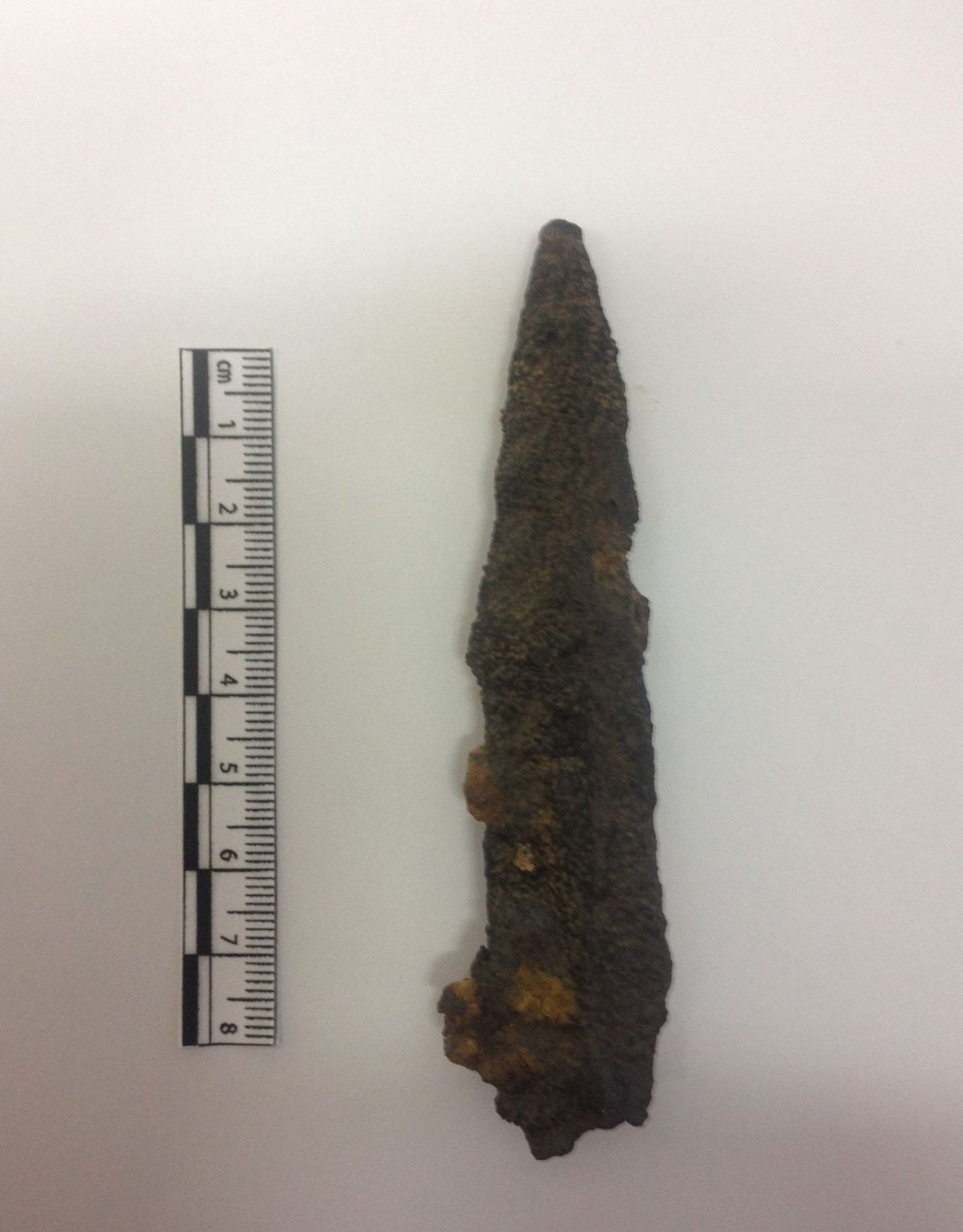
Despite the fact that historians have widely accepted the fact that Julius Caesar led a Roman invasion of Britain in the year 55 B.C., any physical evidence of that invasion has been completely lacking—until now. Archaeologists from the University of Leicester and Kent County Council discovered what they believe to be a defensive ditch at Ebbsfleet, in Kent, with a surprising relic inside.
In addition to being a similar shape as one used in France's Gallic War in 52 B.C., the location is one of the few possible options on the shores of Pegwell Bay, where the invasion purportedly occurred, that could have actually harbored Caesar's army. His fleet was said to comprise 800 ships.

The Telegraph reported that the ditch itself is about 15 feet across and 6 feet deep. Radiocarbon dating, along with pottery recovered from the scene, place it in the 1st century B.C. The archaeologists also found animal bones and iron weapons, including a pilum—a Roman javelin.
"It's probably the single most important object that we found," Andrew Fitzpatrick, a Research Associate from the University of Leicester's School of Archaeology and Ancient History, told Newsweek. "It's not a British weapon…this particular style of weapon goes to the southern Alpine region, to northern Italy. The significance is that that's where Caesar raised his legion; he recruited from that area."
Taken all together, the evidence suggests that Pegwell Bay was the site of a Roman base during the first century B.C. The discovery will be broadcast November 29 on the BBC Four's Digging For Britain.
The same layer of the ditch in which the archaeologists found the javelin also revealed human bones, some with cut marks apparently from weapons. Fitzpatrick said that while they haven't completed the analyses, he believes they likely belonged to British soldiers. Romans would have been protected by their base's rampart, and any soldiers who fell would have fallen inside it; British soldiers would have been more likely to be outside and left behind after they were killed.
In the past, archaeologists didn't think Pegwell Bay could have been the army's landing site because up until the Middle Ages it was separated from the mainland by the Wantsum Channel. But now that they've realized the site was already a Roman base, that separation is no longer considered an obstacle; Roman engineers would have been able to work around it.
"What we must do next is stop, analyze, and publish," says Fitzpatrick. "This is only one bit it a much bigger project, looking at Julius Caesar's invasion of Britain as a whole. This site is just one of several."
In addition to confirming parts of history, the discovery may end up rewriting others. Caesar's invasion has been widely considered a failure because he subsequently returned to France without leaving a conquering army behind in Britain. But professor Colin Haselgrove, the principal investigator for the project from the University of Leicester, told The Telegraph that Caesar had still set the stage for the invasion of emperor Claudius nearly a century later.
Uncommon Knowledge
Newsweek is committed to challenging conventional wisdom and finding connections in the search for common ground.
Newsweek is committed to challenging conventional wisdom and finding connections in the search for common ground.
About the writer
Kastalia Medrano is a Manhattan-based journalist whose writing has appeared at outlets like Pacific Standard, VICE, National Geographic, the Paris Review Daily, ... Read more
To read how Newsweek uses AI as a newsroom tool, Click here.








